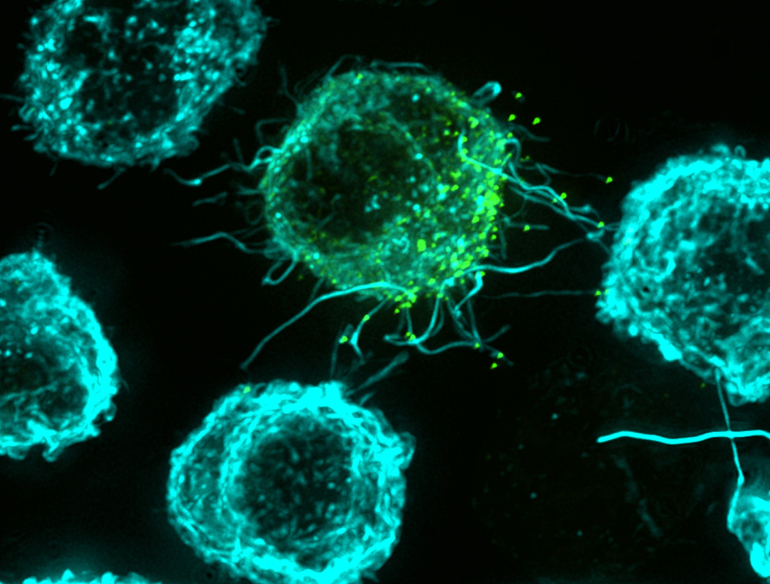We have made major contributions to the health and lives of people impacted by HIV. We continue to work to prevent HIV transmission and to improve health outcomes for people living with HIV, in Australia and globally.
HIV was once a fatal disease for virtually everyone who acquired the infection. The treatment revolution that began in the mid-1990s has now turned HIV into a chronic manageable illness for those with access to the necessary medicines. But for many people in low- and middle-income countries, effective treatments are still not available. An even bigger gap is access to drugs to prevent HIV infection (also known as “PrEP”), the strategy that has been so successful for prevention in high-income countries like Australia.
The Kirby Institute conducts HIV research across a broad range of research disciplines, including in the laboratory, clinical trials, public health and social science. Since the early days, together with affected communities, we’ve developed health solutions that improve the lives of people living with HIV and prevent onward transmission.
Our HIV research has informed global treatment guidelines which have saved lives:
- We led one of only two research studies globally proving that when a man living with HIV has undetectable viral load, HIV cannot be transmitted to male sexual partners. This contributed to a revolution in HIV prevention, including the globally significant “Undetectable = Untransmittable” campaign.
- Our researchers led a successful global clinical trial called ENCORE that proved that lower doses of important antiretroviral drugs worked as well as the standard doses. This led to a drop in treatment cost and greater global access to essential drugs for people with HIV.
- We co-led a trial which showed that the sooner treatment commences, the better it works at keeping people healthy.
- We led one of the world’s largest implementation trials of pre-exposure prophylaxis (PrEP), a medication that prevents the transmission of HIV. This study led to a decline of almost one third in HIV transmissions in gay and bisexual men in NSW.
- We developed modelling techniques allowing scientists to measure HIV reactivation from latency after treatment interruption.
We continue this important work in HIV – seeking the best possible prevention strategies and treatments, and importantly, striving for universal access to these critical healthcare tools.
Programs working in this area:
- HIV Epidemiology and Prevention Program
- Immunovirology and Pathogenesis Program
- Infection Analytics Program
- Biostatistics and Databases Program
- Therapeutic and Vaccine Research Program
- Surveillance and Evaluation Research Program
- Sexual Health Program
- Global Health Program
- Viral Hepatitis Epidemiology and Prevention Program
